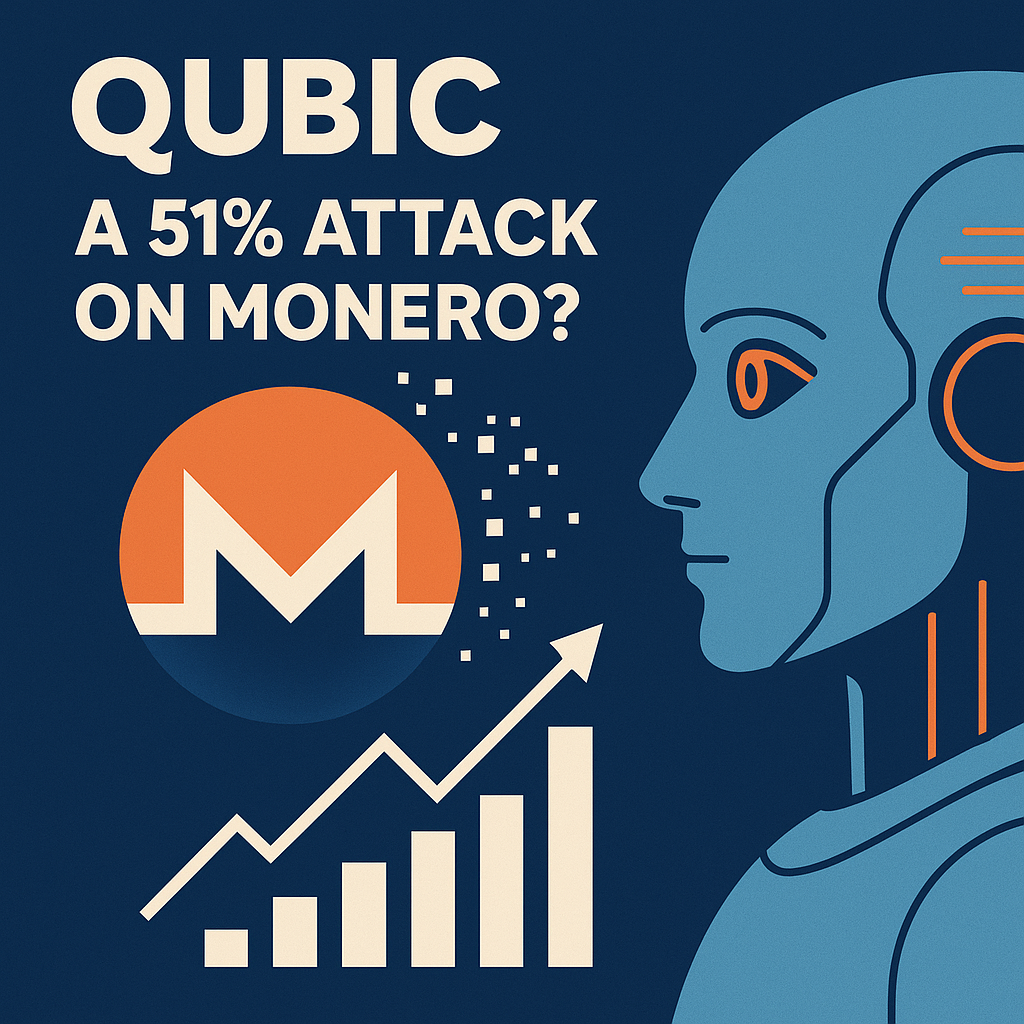
Qubic: A 51% Attack on Monero?
A few days ago, I asked if there were any examples where miners contribute compute power to something useful - like neural networks.
It turns out such a project exists. And more than that - it’s about to launch what could be described as a revolution in Proof-of-Work security.
I’m talking about Qubic - a project that has suddenly climbed to the top of the Monero mining pool rankings and appears to be preparing a 51% attack.
Right now, Qubic controls nearly 50% of Monero’s total hashrate, and that share is still growing.
Here’s their offer:
- You connect to the Qubic mining pool,
- You continue mining XMR,
- But you also earn QUBIC tokens as a bonus,
- And about half your compute power is redirected to training their AI model, Aigarth.
So, only half of Qubic’s power is mining Monero.
But if they ever redirect 100% of it back to mining - Qubic instantly gains majority control over the Monero network, with the ability to disrupt block production.
This isn’t just an attack on Monero - it’s a direct challenge to the security model of Proof-of-Work.
Qubic shows that PoW networks can be compromised by economically outbidding them.
It’s a soft power attack - and a wake-up call for the entire industry.
The attack is rumored to launch in August. To stop it, Monero miners must act intentionally - by switching to other pools.
We’ve seen 51% attacks before (Ethereum Classic suffered several), and the worst outcome is usually not technical, but psychological: loss of market trust and price crashes.
Technically, the network stays intact - but users and exchanges need to wait for many more confirmations per transaction.
So if you’re exchanging Monero via rabbit.io during the attack, expect it to take hours instead of minutes.
That said, these attacks rarely last long. They’re costly and economically unsustainable. After all, why burn electricity to undermine the very asset you’re mining?













